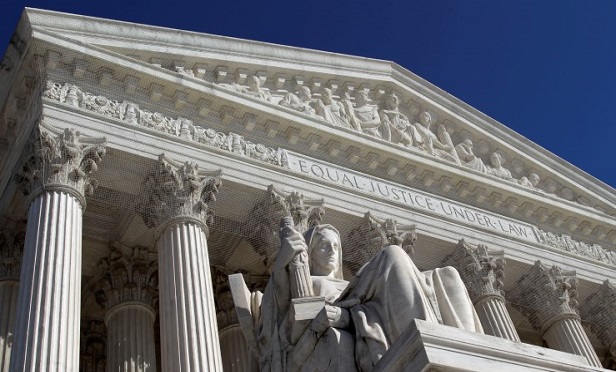 Congress and Obama-era regulators at HHS created the risk corridors program in an effort to get health insurers to participate in the ACA public exchange program. (Photo: J. Scott Applewhite/AP)
Congress and Obama-era regulators at HHS created the risk corridors program in an effort to get health insurers to participate in the ACA public exchange program. (Photo: J. Scott Applewhite/AP)
A health insurer, Maine Community Health Options, has filed an explanation of why it thinks the U.S. Supreme Court should take a look at the Affordable Care Act risk corridors program.
Congress has prohibited the U.S. Department of Health and Human Services (HHS) from using government cash to make the payments participating health insurers were expecting.
Maine Community Health Options argues in the new filing that the congressional action has no legal effect on the existence of the payment obligations.
Related: What's next for ACA risk corridor payments
“Just as for any other debtor, Congress's refusal to pay, or to allot funds for payment, does not cancel a payment obligation,” the health insurer says in the filing. “Congress's failure here to appropriate funds to HHS thus barred HHS from making payments but did not address, let alone negate, the underlying statutory payment obligation. ”
The ACA risk corridors program
Congress and Obama-era regulators at HHS created the risk corridors program in an effort to get health insurers to participate in the ACA public exchange program. Organizers said the government would use cash from thriving exchange plan issuers to help struggling issuers.
The program ended up collecting too little cash from thriving issuers to pay much of what it owed the struggling issuers. The participating health insurers say the program now owes them more than $12 billion.
When Republicans took control of Congress, they succeeded at putting provisions in budget and spending bills that blocked HHS from using any resources other than cash from thriving ACA exchange plan issuers to make the payments.
The court cases
Some judges have sided with the insurers seeking to get payments from the federal government. Some have sided with the administration of President Donald Trump and agreed that health insurers had no formal contract requiring HHS to make the ACA risk corridors program payments.
Eleven judges on the full U.S. Court of Appeals for the Federal Circuit sided with the Trump administration in November, by a 9-2 vote. But the two judges who opposed the ruling blasted the idea that Congress can use votes on funding measures to back away from making payments that other parties were expecting.
What Maine Community Health Options is saying
Maine Community Health Options says HHS still owes the risk corridors program payments because Section 1342 of the Patient Protection and Affordable Care Act, one of the two statutes in the two-act Affordable Care Act statutory package, includes a provision saying the program “shall pay” the payments to the insurers eligible for the payments.
“The jurisdictional test is whether the statute 'can fairly be interpreted as mandating compensation by the Federal Government for the damages sustained,'” the insurer says, quoting from the language in a 1983 case.
“When Congress intends to limit its obligations to amounts appropriated, it says so,” the insurer says. “Congress did not do so here.”
A failure to appropriate funds does not absolve the government of its payment obligations, and the government has a Judgment Fund it could use to make the payments, the insurer says.
Resources
A copy of the Maine Community Health Options petition is available here.
Read more:
- DOJ urges Supreme Court to reject health insurers' $12B risk-corridor payment challenge
- Appeals court ruling costs health insurers billions in subsidies
- The Trump Administration, consumer directed health plans and the future
© 2025 ALM Global, LLC, All Rights Reserved. Request academic re-use from www.copyright.com. All other uses, submit a request to [email protected]. For more information visit Asset & Logo Licensing.







